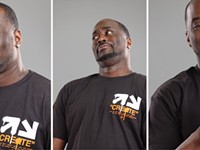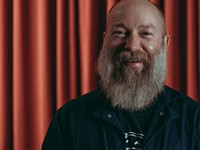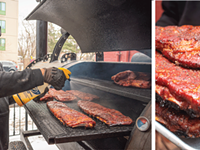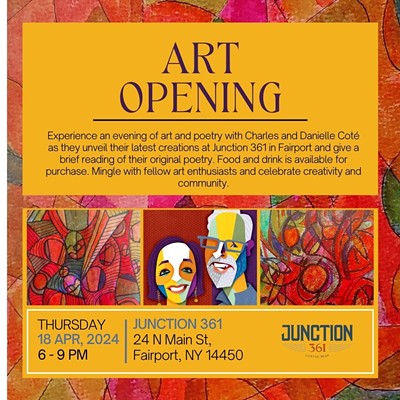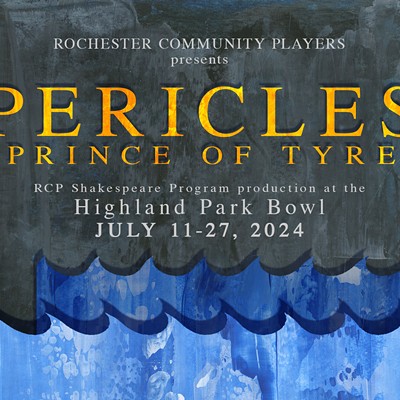[
{
"name": "500x250 Ad",
"insertPoint": "5",
"component": "15667920",
"parentWrapperClass": "",
"requiredCountToDisplay": "1"
}
]
W. Kamau Bell is a stand-up comedian and author who uses humor to shed light on serious issues of inequality in the U.S., in the vein of Dick Gregory and Richard Pryor before him. I first learned of him in 2007 when he released his first comedy album, "One Night Only," and started performing his one-person show, "The W. Kamau Bell Curve: Ending Racism in About an Hour."
His work and success caught the attention of Chris Rock, who produced the show "Totally Biased with W. Kamau Bell" for the FX and FXX networks from 2012 to 2013. After that, he produced two televised comedy specials: "Semi-Prominent Negro" for Showtime, and the follow-up "Private School Negro" for Netflix.
Bell is the host of CNN's five-time Emmy winning docuseries, "United Shades of America with W. Kamau Bell," which will premiere its fifth season in April. Amid all of this, he still found the time to produce the long-running podcast, "Denzel Washington Is the Greatest Actor of All Time, Period," and more recently, "Politically Re-Active," a two-season podcast in which hosts Bell and Hari Kondabolu interview prominent news, political, and entertainment figures including Jake Tapper, Representative Pramila Jayapal, and S. E. Cupp.
Nazareth College will host Bell on January 17 as he presents "The W. Kamau Bell Curve: Ending Racism in About an Hour." CITY chatted with him in advance of his visit, and I resisted the urge to fan-boy for 45 straight minutes. Here's an edited version of that conversation.
CITY: You're a five-time Emmy winner for "United Shades of America." And notably, during your acceptance speech for the most recent Emmy win, you called out in the industry for its lack of diversity. You admitted that even in your own show, sometimes there are not enough people of color and black folks behind the scenes of the show, behind the camera. And recently Orlando Jones and Gabrielle Union both got fired from the same production company, which seems symptomatic of a greater issue. What do you think it would take for the industry to change their attitudes about people of color, behind the scenes and in front of the camera?
W. KAMAU BELL: I think it's important that those of us who get in, and get some level of power and influence, bring other people through the door. And you have to continually advocate. This is the thing that becomes exhausting. You have two jobs: you have a job you've been hired for, and then you have the job that you owe it to your people to do, and this is true whoever you are. Whatever your race is or your sexual orientation is or your gender or whatever, if there's not enough of you, you start to advocate for people and you don't get paid for those jobs. And people find it annoying when you bring it up all the time, as I've learned, but you just have to decide.
I got brought through the door by Chris Rock. He wouldn't necessarily put it that way, but that's exactly what happened. And so for me, I know enough about the history of our people to know that. Martin Luther King Jr. is one guy, he didn't do it by himself. I feel a responsibility to always be advocating and bringing more people through the door because a lot of times, I'll be meeting about projects or things, and I'm aware that the only reason there's multiple people of color in there is because I'm the one who advocated that they be there, otherwise I'd be in a room full of white people.
You got criticized hard for interviewing Klansmen and were accused of giving a platform to Richard Spencer. You never apologized for it, and now it looks like Spencer and others, like Milo Yiannopoulos, are losing their platforms. And a lot of comedians that have been peddling a lot of racist and homophobic things are losing their platforms after being exposed. So do you feel kind of vindicated for what you did?
I believe that I was not giving them a platform and I thought it was weird to get that criticism. Would I do things differently if knew then what I know now? I would do my entire life differently knowing what I know. But having said that, I just never bought into the idea that I was giving them a platform. I think a lot of people, especially in the wake of the election, a lot of people on the left got afraid; it was easier to criticize me than admit the fact that America is under siege, or that America is a scarier place than you believed it was. So it's easier to criticize me than to go, "What does he want me to look at and how do I deal with that?"
So I just I felt like a little bit of a scapegoat. As I've said before, giving the Klan a platform would be like, "Tonight on the United Shades: It's the Klan! The Klan are going to host the show. I'm going to take a break!" Like backdoor pilots in the '70s and '80s for new sitcoms, a backdoor pilot for "The Klan Hour."
But I do think that at some point, we've seen enough of that. And so every week I'm not going to meet with the Klan just because I think you need to see who the Klan is. I'm not going to meet. There are other shows and media that every week, it's a new hateful person, and that's not what I want to do.
And the thing about the Richard Spencer thing — it was clear to me that most people saw the commercial and didn't see the show and then read articles about the commercial, because 80 percent of the show was about diversity through immigration. Opening our borders to refugees makes America a better country. Nobody wrote an article about that.
Yeah, and it was only like five minutes of Spencer.
Yeah. And you can't talk about the immigration and refugee stuff without talking about the forces in this country that are aligning against it. So to me you have to talk about both. It was fun to be attacked by the left for once. I was reading articles where some guy said, "W. Kamau Bell should've punched Richard Spencer in the face." Really, guy who wrote an article on the computer? Would you have done that? And also, no sense of the idea that, as a black man, if I punch a white guy the face on TV, then I'm separated from my family.
Now by the same token, with the Klan episode there was specific feedback from black folks who were like, "Why do we need to see this? We already know the Klan exists." Well, that is true that you do. But there are a lot of people who think this is a thing of the past, who need to be confronted by America's current racism in all of its forms. Every episode has that, with some communities saying, "I already know this because this is my community." But a larger section of people are like, "I didn't know; I needed this."
Your show has not only spotlighted reprehensible people but also positively spotlighted the Sikh and Gullah communities. Do you think artists and comedians have an important role in spotlighting diaspora communities?
I think that this is the kind of work I want to do. I don't think everybody will do this. I always think, especially as a comedian, we also get to pick what we want to talk about, and I'm not gonna sit here say, "Everybody has to do what I'm doing." Because I think it's a great thing that there's a comedian out there for everybody. There's stuff out there for everybody. So I'm not going to say other people need to do this.
I think the world needs all of it. I don't only take in the kind of content that I make. I take in all sorts of things. I'm just grateful I live in a time when there are outlets like CNN doing this type of work. Because when I was coming up, I never could have imagined having a TV show on CNN. That was not a thing that existed. Certainly for a kid who wanted to be a comedian, because there was certainly not a comedian with a show on CNN. So I think for me, I just feel fortunate that I live at a time where this is an avenue for me.
Yeah, absolutely. I guess a few good things did happen this year. Or this century.
Yeah, but also that's balanced out by the fact that this show is also like an indictment of America. But you know, so I'm glad that I live in a time where I could do a show where I get eight episodes a year to indict America for its sins!
Your comedy is deeply rooted in a lot of current events. It's a good way to keep things fresh, because you're always commenting on things that are happening right now. But a lot of the topics keep arising. How do you keep your audience engaged, when a lot of the exact same issues keep repeating themselves every few months?
Well luckily, I don't host a late night talk show. Like I don't have to figure it out every night. If you're Trevor Noah, you say, "How do I do another 20 minutes on this?" I think some people are built for that, and I don't think I am built for that. Luckily the work I'm doing has a long enough production period right now that I can really follow the whole trend and also find some deep dive into stories and issues that people aren't really talking about, even if they think they're talking about these issues. I love nothing better than an article that exposes some new thing that nobody saw. And that's what I do with the shows when I go speak at college campuses and things. It's a way to pull out the threads that I feel a lot of people didn't see. The best thing is sharing information with people that they didn't know, but the information is also compelling, and you can really make it entertaining.
I don't sit around necessarily thinking about, "How do I write jokes about racism or inequality?" It just so happens that when I think things are funny, they often are about that, and those are also the things that I get the most mileage out of. I think about things that are funny across all sorts of subjects, but I just can't really invest the time, I don't have the interest in investing in them and doing work on them. But yeah, certainly the subjects that are most compelling to me happen to be those subjects, so it's not like I have to backward engineer anything.
I think some people had some idea that I was like a poli-sci professor at a liberal arts college and go, "How do I get this out to the masses? I'll do comedy!" No, I grew up wanting to be a comedian because of Eddie Murphy on Saturday Night Live, and Jerry Seinfeld, and eventually I decided not to be comedian like those guys. I couldn't be a comedian like those guys; I found the lane that was best for me.
You're on this #TogetherWeGive campaign, and also, you were nominated for a GLAAD Media Award back in the "Totally Biased" days, and you've done spots with Planned Parenthood, promoting reproductive justice. Are you ready call yourself an activist now? I know, you've stayed away from saying that you're an activist, but like, these are things that activists do.
I mean, I certainly engage in activism. I still feel like "activist" is a job title. You see a lot of people work out at the gym, but you wouldn't say, "Look at all these athletes! Kumail Nanjiani used to work at the gym. Now he's an athlete." I just don't know why I would call myself an activist because that's not my job. But I certainly engage in activism whenever I can, and I certainly am looking for more ways to promote activism and connect people to activists. And a lot of the things that I do are through activists contacting me and asking, "Can you do something about this?"
So I'm not ashamed of that word. I just don't think it's my lane. Putting that word in my bio — I have friends of mine who are activists and would ask, "What do you do now? Do you think the way you work is activism?" If somebody wants to call me that, I'm not gonna message them and yell, "I'm not that!" But I just feel like I'm not gonna call myself that.
I think by labeling me an activist it's almost letting everybody else off the hook for not doing more activism. Currently the TV is wall-to-wall people talking about impeachment of the President, who shouldn't have two articles of impeachment, he should have 20. So if we're not all in some way spending some part of our lives dealing with this — forget what's happening on TV. In our communities, there's any number of people who need help, and you could tweet out a link or you can send them some money or you could drop off something or you could ask somebody how to connect with them. We should all be engaged in that to some point.
Do you plan on shedding a spotlight on more little-known small diaspora communities, just like with the Gullah community, the Hmong community, and the Sikh community, on "United Shades of America?"
Yeah, I think something we have to do every season is highlight communities that feel like they aren't being understood well enough in mainstream channels. So, yeah, we are working on season five right now. We've got an episode about Iranian Americans of New York and an episode about Venezuelans in and around Miami. So those are two examples of communities. That's one of the things, when we sit down and talk about the new season, we're always looking for episodes like that, because I think people really appreciate those. I really enjoy them because I get to learn a lot about communities I don't know that much about and I think it's something we do in a way that nobody else does.
Regarding "Finding Kamau," in which you explored your genealogy, what would you say to folks who are suspicious of giving their DNA to an agency like that?
Certainly, I respect people's cynicism around those things. But this is what I did. This is what it did for me. I think the reason why I did it was more about what it did for my parents and how I saw them react to the information. And for anybody who's suspicious of that, I understand; also, you might want to take that smartphone out of your pocket. We make these choices all day long about what we will and won't share. I'm not saying you shouldn't be suspicious. I accept your suspicion of it, and there are things I won't do in my life while I'll do other things. So we're all constantly linking everything to our Facebook pages which is also linked to our Instagram and also walking past 100,000 cameras a day. I just think for me, I made that judgment call based on what I thought it could do for me and my family.
And it looks like you found a lot of interesting things. There was a great-great uncle who was in the Civil War.
Yeah we had him, and we did find some activists, at least two people doing activism. It was great. I was excited about this, learning about the percentages of who I am, because I'm really curious about that stuff. But for my parents, there are all these names that they've heard all their lives that they don't really know who these people were. And so they were excited to really sit down and engage and find out about who some of these people are. For black people in this country, the only way we're going to find this stuff is if we really do the proper family digging through records and newspapers, because once you hit slavery, we're all just property. It takes a lot. So for that, for the work they did, for that alone, I really appreciate it. It was worth it for me
Yeah. After about two or three generations, there always seems to be a wall, specifically for black folks. Because once you hit the slave records, there are no names. They don't care about ethnicity of the people. They don't care about, you know, what region of Africa they came from.
Yeah. So I'm happy that we have these organizations, and there are other organizations other than Ancestry.com who will do the work and help you find that stuff out.
Do you plan to create another season of "Politically Reactive?"
Hari and I just talked the other day. We were only supposed to do that for one season, and then Trump got elected. Somebody actually came to us came to us to do that show, and so then when Trump got elected, we said, "Let's do one more year," The reason why we ultimately stopped it is because it was really hard to make it. We're both super busy, and we also hard to find the guests. It was just hard to pull off.
Having said that, people ask both of us that all the time, and with the current election coming up we have talked about if there's a way to bring it back. I don't even know if we can use that name because it wasn't ours. But let the "Politically Reactive" fans know that Hari and I regularly talk about it. It feels like it's the sequels of the movie you say you'd never do, but it feels like right; maybe we need it. Maybe we need to make another one. It is calling us. I'll say that. We just have to figure out how to do it in a way that we that makes sense for both our schedules.
The other thing is logistics, because weren't you on two different coasts when you recorded?
Yes, sometimes I would be on the West Coast. Hari would be on the East Coast, and we'd be talking with somebody in a third location. We spent a lot of time dealing with studios that didn't know how to do that. The recording took forever. I'd finish recording mad, because we just took like three hours to get an hour of conversation. But we certainly talk about it. If I were to bet, I'd say something's going to happen, because we keep hearing about it, and we both really enjoy working together.
It just surprised us that it took off so big. You never know with podcasting and you also never know what people are going to pay attention to. It's funny; Hari kept saying, "I can't believe how many people are watching this!" And I said, "Hari, you've never been a part of something that was truly successful before!" He just couldn't believe it. And so if I were to bet on it, something's gonna happen.
Any chance of "Kamau Right Now" coming back, too?
Oh that's like my retirement plan! I think I'll always be able to get a local radio show, luckily, no matter what happens. You know the old local guy who's got the show, and people ask, "Why's that on?"
Do you have any other shows besides your own show that you would suggest people watch? Is there anything you're interested in right now?
Well, I was in the middle of production. So I haven't seen anything in a while.
I mean, my favorite show on TV is "The Good Place." That's my happy place. I grew up with Ted Danson on TV with "Cheers." I'm a big fan of all the people on "The Good Place." To have a show on network television that is talking about ethics —and is also super goofy and well-written and some of the greatest comedy writers that we have are on that show —from the perspective of being a comedian, I think it's great. And from the perspective of liking sitcoms, I think it's great. So that's my favorite show right now.
But I mean, I also watch "Shark Tank," so I don't know what I'm talking about.
I mean, everybody's gotta have a guilty pleasure.
Yeah. And it's done in an hour. And there's not, "Next week on 'Shark Tank'...." No, it's over, and you don't have to see those people anymore.
You traveled to Africa. Do you have any tips for people who want to travel to Africa?
I went to Kenya, so I certainly feel like I only know about Kenya. If you can, go on a safari, even if it seems to kind of old school and weird. It really was amazing to be in a tiny vehicle and see lions walking around you, and giraffes. You may think, "I've already been to a zoo," but you can't really prepare yourself for it.
Also for me, it's such a different experience to be at a place where you just see black faces everywhere at all levels. It's like the way DC used to be before gentrification. I was excited to go back with my kids. For me, I think getting out of the country — and I haven't done enough of this — but it's just, being in a different airport out of the country. I think the more we in our lives can have that feeling of, "I don't understand any of this," the more you expand the idea of what is possible. Then things start to be less weird to you just because you haven't experienced them. Just like the thing we talked about earlier, the big problem with this country is that people think their corner of the country is the country, and then when they see someone doing something else, they go, "That's wrong, I don't do it that way." That's just not helpful.
Chris Thompson is a freelance writer for CITY. Feedback on this article can be directed to [email protected].

